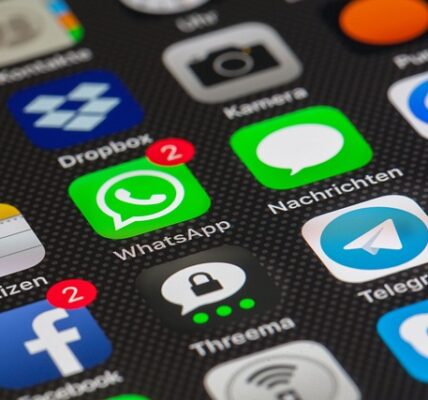Understanding the Importance of Safe Online Behavior for Children
As technology advances at an unprecedented rate, it’s becoming increasingly challenging for individuals to navigate the digital world. The line between a healthy digital lifestyle and excessive screen time has become blurred, leading to concerns about mental health, social skills, and overall well-being. In today’s fast-paced, tech-driven society, it’s essential to adopt mindful technology consumption habits that promote balance, productivity, and positive relationships.
In this article, we’ll explore the importance of mindful technology consumption, providing practical strategies for individuals, parents, and educators to cultivate a healthier digital culture. By adopting these guidelines, we can mitigate the risks associated with excessive screen time and foster a more balanced, healthy relationship with technology.
Mindful Technology Consumption: A Necessity in the Digital Age
The average person spends around 4-6 hours per day on digital devices, which translates to over 1,000 hours per year. This prolonged exposure can have detrimental effects on mental health, social skills, and overall well-being. Prolonged screen time has been linked to increased risk of depression, anxiety, sleep disorders, and eye strain, among other issues.
To combat these risks, it’s essential to develop mindful technology consumption habits that promote balance, productivity, and positive relationships. Here are some key points to consider:
1. Set Boundaries: Establish clear boundaries around your digital usage, setting specific times for work, leisure, and social media. This will help you avoid the temptation of mindless scrolling and ensure a healthy balance between digital and offline activities.
2. Prioritize Face-to-Face Interaction: Regular face-to-face interactions are crucial for building and maintaining strong relationships. Make time for in-person connections with family, friends, and colleagues to foster deeper connections and social skills.
3. Use Technology Intentionally: When using technology, have a clear purpose or intention in mind. This will help you avoid wasting time on non-essential activities and ensure that your digital usage is aligned with your goals and values.
4. Practice Digital Detox: Regular digital detoxes can help you reset your relationship with technology and reduce the risk of addiction. Set aside device-free times or days to recharge and refocus.
5. Monitor Your Screen Time: Keeping track of your screen time can help you identify areas for improvement and make informed decisions about your digital usage. Utilize built-in features, apps, or software that monitor your screen time and provide insights on your habits.
6. Foster a Culture of Mindfulness: Educate yourself and others about the benefits of mindful technology consumption. Encourage open discussions about digital wellness, body positivity, and self-care to promote a culture of mindfulness in your personal and professional life.
7. Set a Good Example: As a role model, set a good example for children by modeling healthy digital behavior. Demonstrate responsible technology use, and encourage them to do the same.
8. Encourage Physical Activity: Regular physical activity is essential for maintaining physical and mental health. Engage in activities that promote physical well-being, such as sports, yoga, or simply taking a walk.
9. Utilize Technology to Promote Balance: Leverage technology to support your efforts towards balance. Explore apps, tools, and software that help you stay organized, focused, and productive.
10. Cultivate Self-Awareness: Regularly assess your digital usage habits and identify areas for improvement. Develop self-awareness about your thoughts, emotions, and behaviors when interacting with technology.
By embracing these guidelines, individuals can cultivate a healthier relationship with technology, reducing the risks associated with excessive screen time and fostering a more balanced, productive lifestyle.
In conclusion, mindful technology consumption is no longer a luxury but a necessity in today’s digital age. By adopting these practical strategies, we can promote balance, productivity, and positive relationships while mitigating the risks associated with excessive screen time.
Tags:
mindful technology consumption
digital wellness
tech addiction
screen time management
balanced lifestyle




